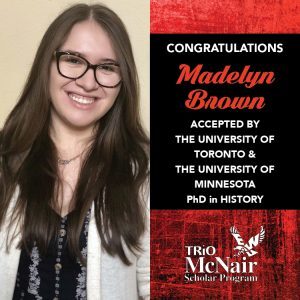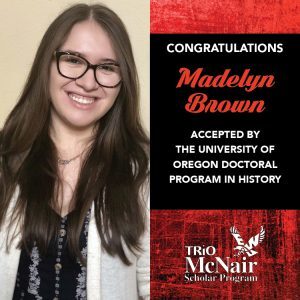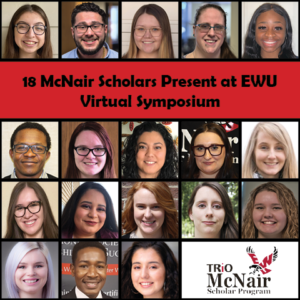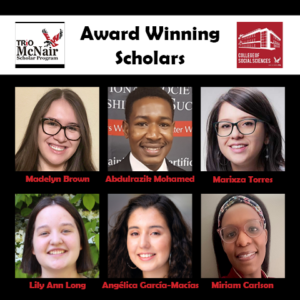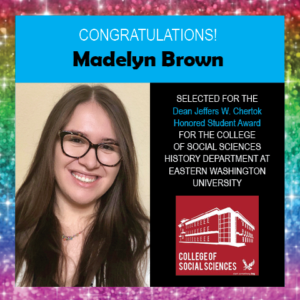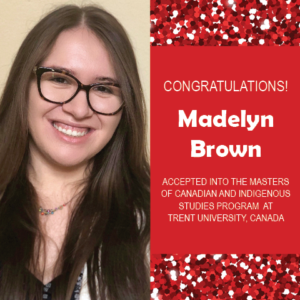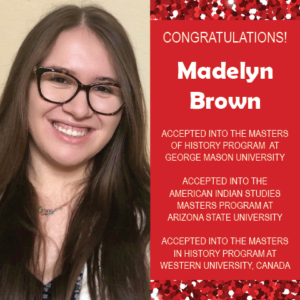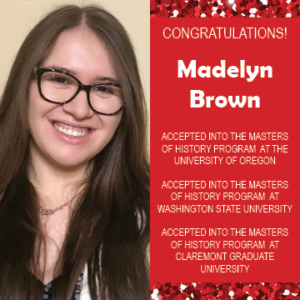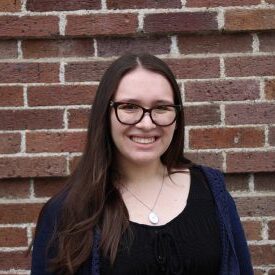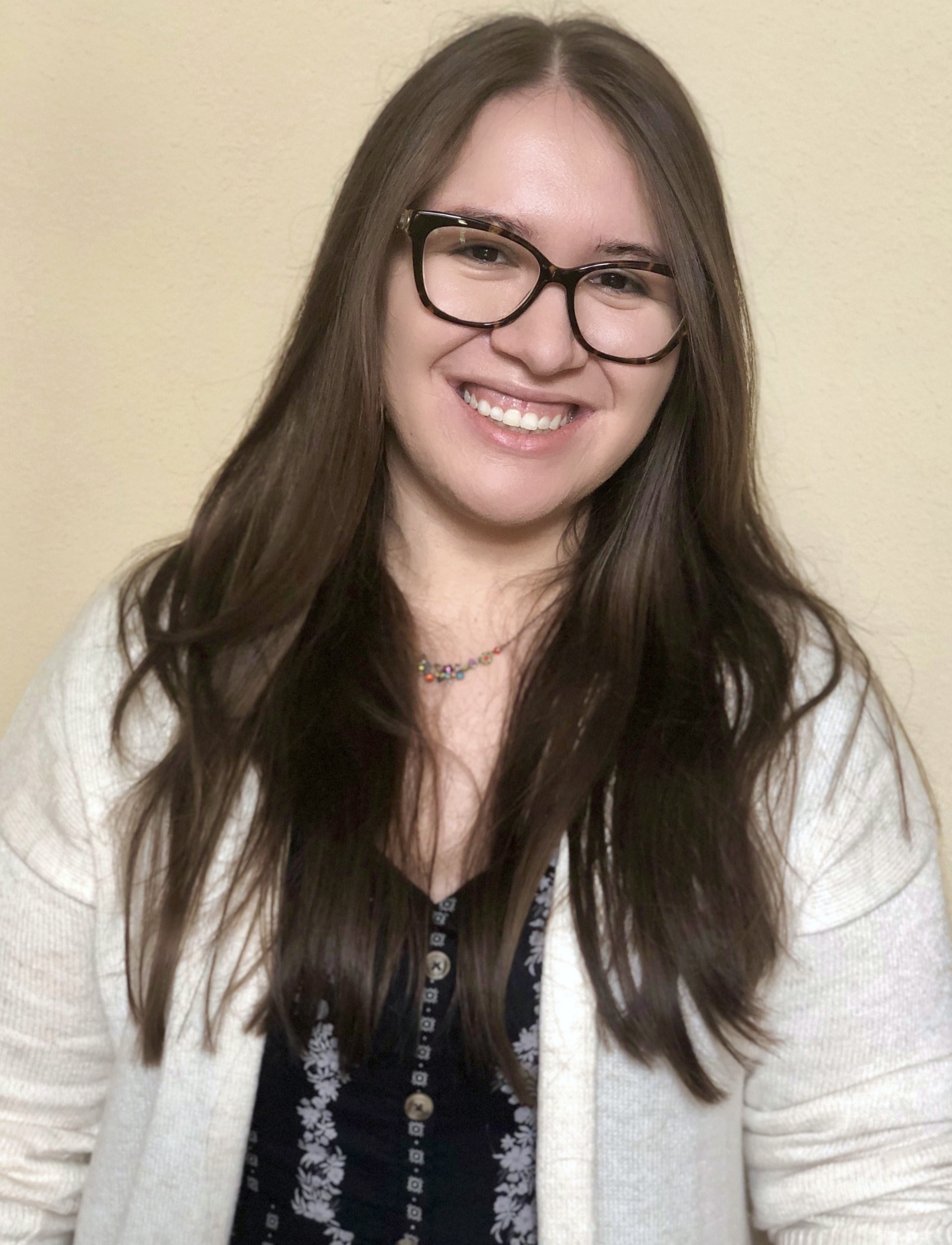
Madelyn Brown graduated from Eastern Washington University in 2020 with a Bachelor of Arts degree in history with an emphasis in American Indian Studies. Madelyn’s research interests focus on traditional Indigenous knowledge and its historical influence on ecological-care techniques utilized by Pacific Northwest tribal communities. She was the recipient of the 2018 Gingolyx Village Government scholarship for academic excellence and a member of both the Native American Student Association and Phi Alpha Theta.
Madelyn was accepted into the Master's of Canadian and Indigenous Studies at Trent University, Canada; the American Indian Studies Master's program at Arizona State University; and Master's programs in History at Washington State; Western University, Canada; the Claremont Graduate School; George Mason; and the University of Oregon, where she began attending in Fall 2020 with full funding. Madelyn completed her MA in History at the University of Oregon in Spring 2022, and began her doctoral work at the University of Minnesota in Fall 2022.
2019 McNair Faculty Research Mentors: Lecturer SimHayKin S. Jack and Dr. Christina Torres Garcia
Research Title: Maintaining Our Land: Traditional Ecological Knowledge and Wildfire Prevention
Abstract: For over 100 years, Euro-American strategies devised and implemented in the western United States have contributed to the exponential increase in wildfires. By enforcing suppressive measures to disrupt the natural fire regimes, U.S. fire management agencies changed forest structures, wildfire severity, and previous preventative methods utilized by Indigenous peoples in the Northwest. Heavily influenced by past policies and Eurocentric beliefs, the continued tactics used to eliminate wildfires from ecosystems have instigated a greater occurrence of fires throughout our western forests as burnable fuels grow rampant. Taking into account the historic discrimination against Traditional Ecological Knowledge and its benefits in forest—and wildfire—management, I propose that these care techniques, specifically the acceptance of fire as a viable influence in forest health, should be taken into consideration when utilizing preventative measures against human-caused events.
